Civility in public life: A Global Executive Live Panel reflects on challenges and solutions
Many of the challenges that local government faces are shared with colleagues in other countries. Pooling learning and adapting emerging innovation to fit local circumstances will be key to how the sector around the world finds solutions to ensure a sustainable future for councils everywhere.
Global Executive Live Panel discussions – run in partnership with the Local Government Information Unit (LGiU) – are part of VLGA Connect series of resources. They bring together colleagues from councils across the UK, Ireland and Australia to share ideas and discuss common challenges.
The panel event on 22 May discussed civility in public life and our five speakers were:
- Professor Catherine Needham, Professor of Public Policy and Public Management, University of Birmingham
- Jo Miller, Chief Executive, Hutt City Council, New Zealand
- Jacqui Weatherill, CEO, City of Greater Dandenong, Australia
- Hannah Phillips, Civility Commission Manager, The Jo Cox Foundation
- Diane Kalen-Sukra, Author, Speaker, Coach
Across the globe, hostility towards and distrust in public institutions is rising. Nowhere is this more true than at a local level – the most accessible sphere of government. Councillors and staff are increasingly tackling issues stemming from rising levels of negative, abusive and sometimes threatening rhetoric.
Our Global Executive Live Panel explored the situation in an international context and considered different approaches for counteracting this phenomenon. From implications for staff retention to existential threats to our democratic system of government, we have summarised the main points that emerged from the discussion.
Five key takeaways
- Abuse is rising – and it’s becoming normalised. From social media trolling to harassment in council meetings, the discussion made one thing clear: incivility is no longer the exception. Jo Miller, Chief Executive of Hutt City Council in New Zealand, reflected on her early experiences facing public anger as a council tax officer in the UK and noted that while incivility has always existed, today it is omnipresent and amplified by online platforms. “You used to be able to shut your door and leave it behind. Now, it follows you home,” she said. Recent surveys in New Zealand show a stark rise in harassment, with the number of civic officials experiencing it rising from 43% in 2022 to 74% in 2024.
- Abuse disproportionately affects women, young people and minority communities. Jacqui Weatherill, CEO of the City of Greater Dandenong, Australia, highlighted the unique challenges faced by councillors from minority backgrounds, particularly young women. A toxic mix of sexism, racism, and ageism discourages talented individuals from participating in public life.
- Frontline staff are suffering too. Incivility isn’t limited to elected officials. Local government staff are also subject to aggression. Jacqui Weatherill noted that in her municipality, front desk staff often bear the brunt of community frustration. Despite strong support mechanisms, the constant strain is driving some staff to leave the sector entirely. “Good people are being lost,” she warned.
- Culture change is critical – policy alone isn’t enough. Canadian author, Diane Kalen-Sukra, was clear that addressing incivility is not just about managing people – it’s a governance issue. She called for civic leaders to treat toxic cultures as organisational risks that must be diagnosed and managed like any other threat. “Civic culture must be cultivated,” she said, stressing that real, lasting change requires a community-wide shift in expectations, behaviours and leadership. From community civility initiatives to civic education, a multi-pronged approach is essential.
- Our democratic future depends on getting this right. The implications of unchecked incivility go far beyond individual wellbeing. Hannah Phillips, Civility Commission Manager at The Jo Cox Foundation, underlined how abuse deters engagement and skews representation. Their research found that three-quarters of women were uncomfortable sharing political opinions online. Abuse and harassment are pushing councillors out of office and putting off the next generation from getting involved. “This is an existential issue for our democracy,” she said.
.
The VLGA acknowledges the Traditional Owners of Country throughout Victoria and recognises their continuing connection to land, waters and community. We pay our respects to the Traditional Owners, their elders past, present and future, and to their cultures.
Disclaimer:
The advice provided by the VLGA is intended to be guidance only. It is not a substitute for legal or formal advice from relevant regulatory bodies.
© Victorian Local Governance Association 2023




